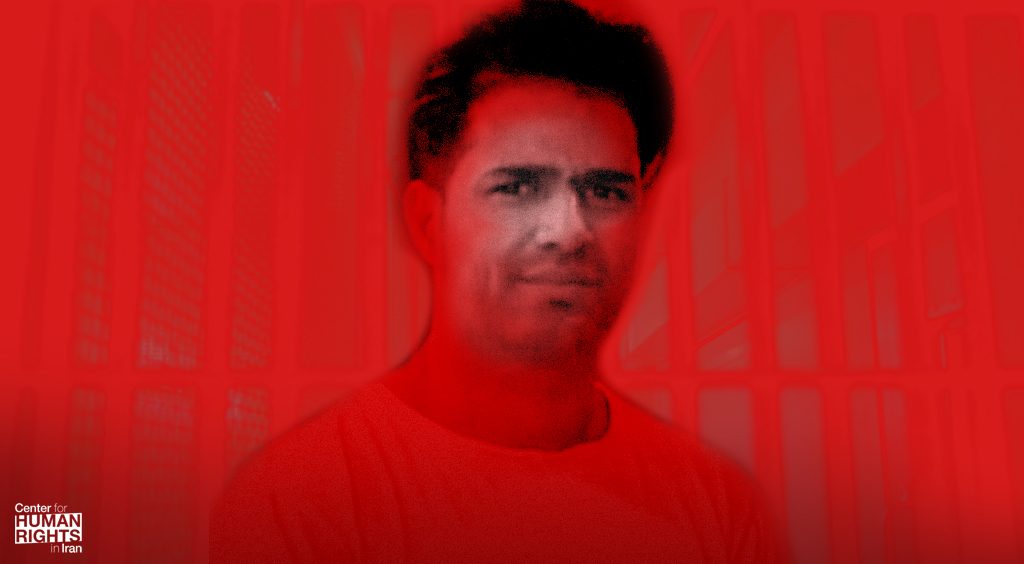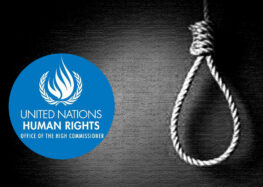Critically Ill Political Prisoner Should be Freed, Receive Life-Saving Medical Care

Iran Must End Systematic Denial of Healthcare in Prisons
February 16, 2021 – Prisoner of conscience Behnam Mahjoubi could die if he is not provided the immediate and comprehensive medical treatment that he was initially denied, the Center for Human Rights in Iran (CHRI) said in a statement today.
CHRI urges Iranian authorities to allow all prisoners to receive full and proper healthcare and to hold judicial and prison authorities accountable when that care is denied.
“The Iranian judiciary’s systematic denial of proper medical treatment to prisoners is well-documented as are cases of prisoners suffering irreparable harm as a result of this policy,” said CHRI Executive Director Hadi Ghaemi.
“Now we are seeing Behnam Mahjoubi’s life in danger for this unacceptable reason,” added Ghaemi. “This cruel and inhumane policy of further punishing prisoners by endangering their lives must end through legislative action as well as international condemnation.”
Mahjoubi, a member of Iran’s severely persecuted Sufi Gonabadi Order, was previously subjected to months of tortureand was hospitalized on February 13, 2021, at Loghman Hospital in Tehran.
“A few days ago, Behnam’s neurological illness acted up again and he had a number of seizures,” said his mother Batoul Hosseini in a video message that was shared February 15 on social media networks. “Even though the Medical Examiner had concluded that Behnam could not withstand incarceration, the prosecutor rejected it.”
“After suffering seizures, he got very sick last night and was taken to the prison office. I don’t know what kind of pill they gave him there but at 4 a.m. Behnam lost consciousness and then they took him to Loghman Hospital,” she added. “When relatives found out, they went to the hospital but were not allowed to see him.”
On February 16, Iran’s State Prisons Organization stated that Mahjoubi has a “history of illness” and was “recently poisoned and has been immediately transferred to a hospital in Tehran for treatment.”
“On January 31, 2021, the judicial authorities concluded that due to the convict’s illness, the enforcement of his sentence would be suspended, provided that a bail set at 200 million tomans ($39,090 USD) is paid to get him out of prison,” added the statement.
However, Mahjoubi became critically ill before he was released.
Mahjoubi is among hundreds of Sufi dervishes who were arrested at street demonstrations in Tehran in 2018.
He has been serving a two-year prison sentence under the charge of “collusion against national security” in Tehran’s Evin Prison since June 2020 and remained imprisoned even after his health visibly deteriorated in the fall.
In September 2020, the prison clinic’s doctor pressured Mahjoubi to take sleeping tablets, apparently to control his panic disorder, after which he suffered seizures and partial paralysis, according to Amnesty International.
“The left side of his body is partially paralyzed, his left hand trembles and he is unable to walk without help,” said Amnesty International in a statement. “He has gone on several hunger strikes in protest at his imprisonment, treatment in detention, denial of access to specialist medical care outside prison for his seizures and paralysis and the periodic withholding of medication.”
Political prisoners in Iran including elderly inmates are singled out for harsh treatment, which often includes denial of medical care. The threat of withheld medical care has also been used as an intimidation tool against prisoners who have challenged the authorities or filed complaints.
The UN has expressed serious concerns over Iran’s continuous denial of appropriate healthcare to detainees, despite repeated calls.
The UN’s Standard Minimum Rules for the Treatment of Prisoners state, “…Where hospital facilities are provided in an institution, their equipment, furnishings and pharmaceutical supplies shall be proper for the medical care and treatment of sick prisoners, and there shall be a staff of suitable trained officers.”
Iran’s State Prison Regulations are also explicit regarding the medical care of prisoners. Article 118 states, “Examination, and when necessary treatment, of sick convicts is the responsibility of the prison or training facility.”
Yet the grossly inadequate nature of the “treatment” provided in Iranian prisons is apparent through prisoners’ testimonies and documented cases of denial of medical care.






